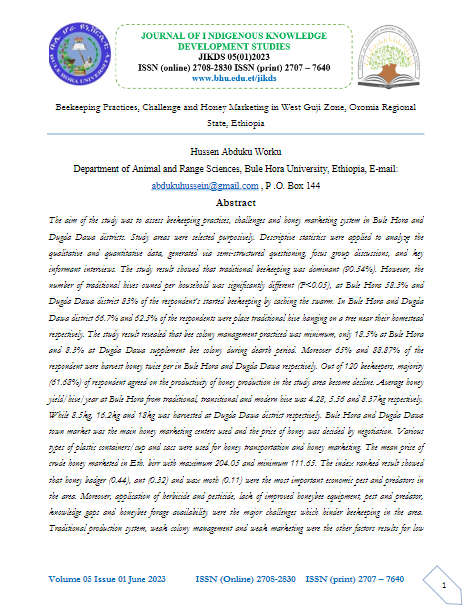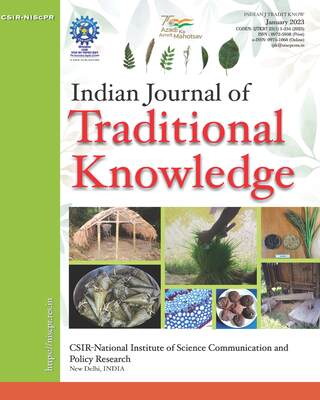
Beekeeping Practices, Challenge and Honey Marketing in West Guji Zone, Oromia Regional State, Ethiopia
Publication Year: 2023
Author(s): Worku HA
Abstract:
The aim of the study was to assess beekeeping practices, challenges and honey marketing system in Bule Hora and Dugda Dawa districts. The study result showed that traditional beekeeping was dominant (90.54%). However, the number of traditional hives owned per household was significantly different (P<0.05), at Bule Hora58.3% and Dugda Dawa district 83%of the respondent’s started beekeeping by caching the swarm.In Bule Hora and Dugda Dawa district 66.7% and 62.5% of the respondents were place traditional hive hanging on a tree near their homestead respectively. The index ranked result showed that honey badger (0.44), ant (0.32) and wax moth (0.11) were the most important economic pest and predators in the area. Moreover, application of herbicide and pesticide, lack of improved honeybee equipment, pest and predator, knowledge gaps and honeybee forage availability were the major challenges which hinder beekeeping in the area.
Source of Publication: Journal of Indigenous Knowledge and Development Studies
Vol/Issue: 5(1)
ISSN: 2707 –7640
Country: Ethiopia
Publisher/Organisation: Journal of Indigenous Knowledge and Development Studies
URL:
http://213.55.95.79/index.php/JIKDS/article/view/8583/6816
Theme: Traditional Animal Husbandry | Subtheme: Beekeeping
Related Documents
Research Papers/Articles

Traditional Meliponiculture by Naga tribes in Nagaland, India
Published Year: 2016
Abstract:
Usually log hive and rectangular bee boxes were used by Naga beekeepers, although a few have t... Read More
Research Papers/Articles
Abstract:
Nagaland dwellings plentiful bee flora is as a natural endowment. Indigenous techniques,... Read More
Opinions/Videos

Restoring land and livelihoods with beekeeping in Tanzania
Published Year: 2023
Abstract:
In northern Tanzania, recurring drought in recent years caused by climate change has put press... Read More



